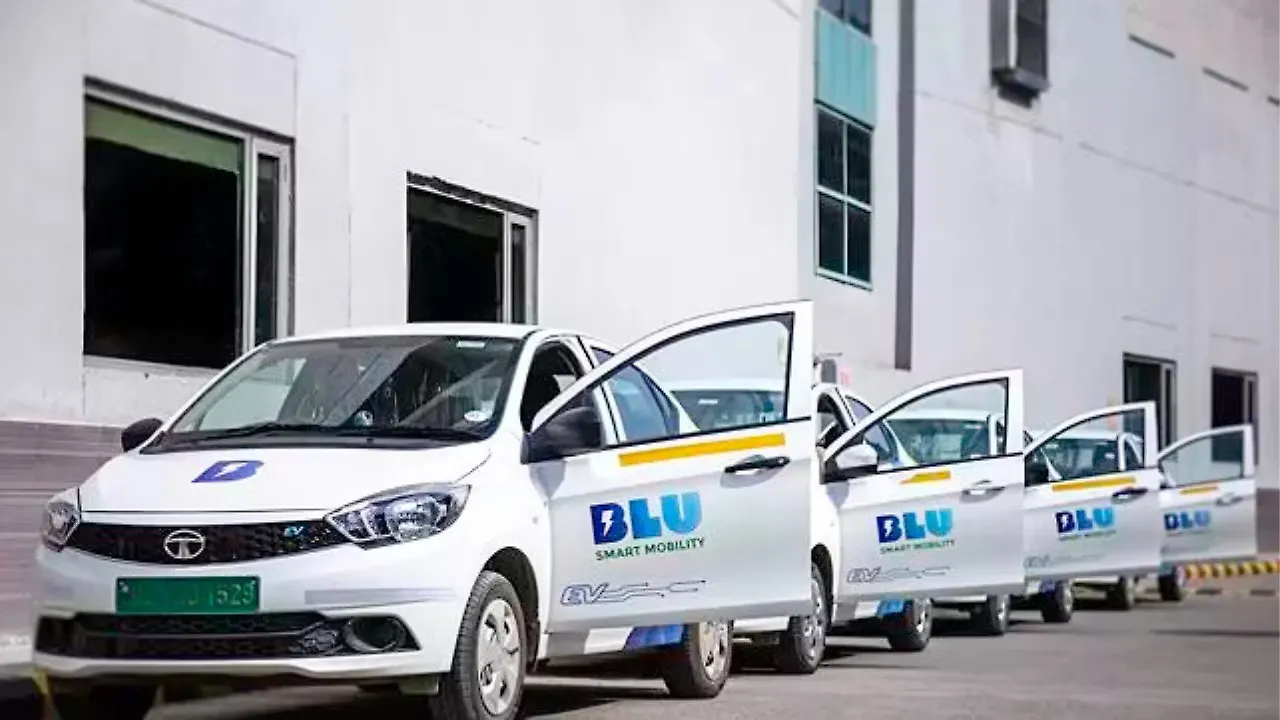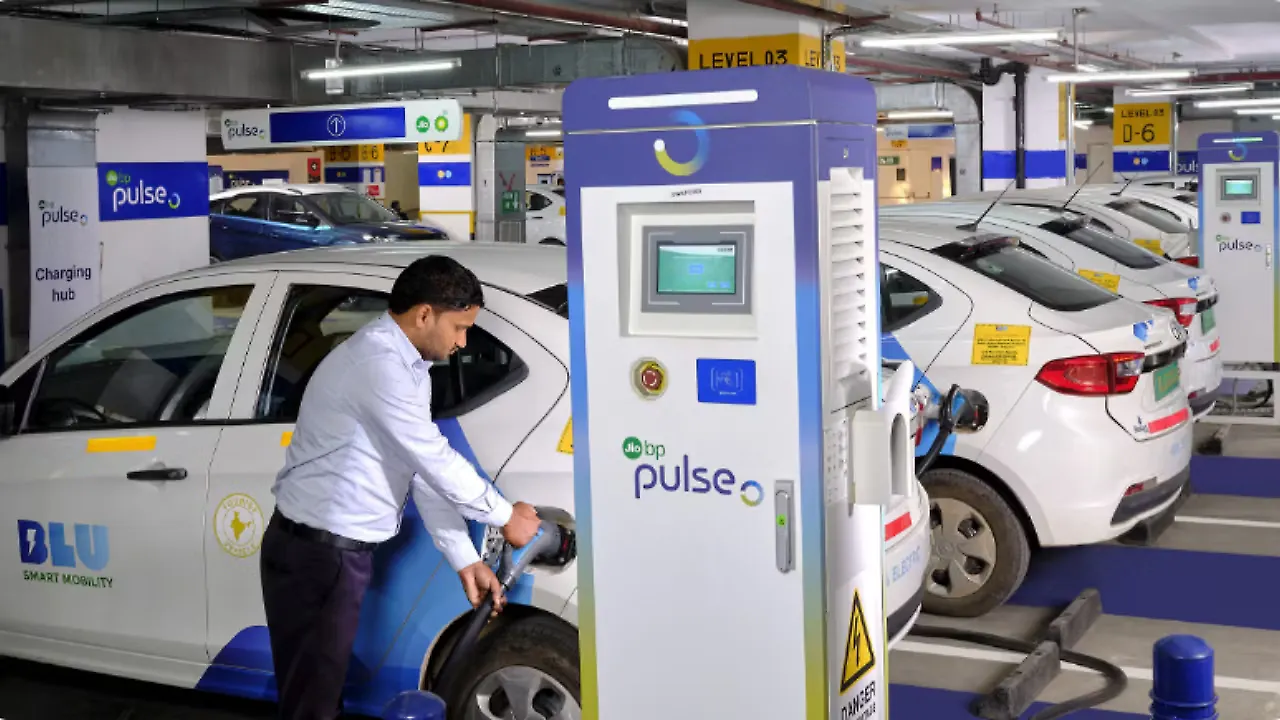
The ride-hailing market worldwide has been seeing significant changes. Consumers' inclination to avoid large overhead costs of car ownership and its maintenance, coupled with the increasing traffic congestion and lack of parking space, fuels the global market growth for the business.
The global ride-hailing and taxi market is also driven by rising smartphone affordability, internet service penetration, and new ride-hailing and taxi-booking apps. One such ride-hailing brand is BluSmart. Started its operation in 2019 with just 10 EV four-wheelers, the company currently operates a fleet of 3,200 e4Ws across Delhi NCR and Bangalore. Speaking to Mobility Outlook, Punit K Goyal, co-founder, BluSmart, said that with the growing demand for ride-hailing services, the company intends to have a fleet size of 7,000 vehicles by the end of December 2023, while the end of FY24 will see a fleet size of 11,000 EVs. With this fleet expansion, the company also wants to onboard vehicles from a few new OEMs.
BluSmart offers its customers a choice between the Tata Tigor, BYD e6 and the MG ZS EV, with the Tata EVs taking most of the share. Going forward, while the share of Tigor EV or Xpress-T will likely remain the highest, the company will also see a few new inclusions, such as Citroen eC3. Interestingly, with the launch of the eC3, the company noted that it expects most of the customers to come from the b2b side.
Goyal stated that the company is also in talks with Gensol, owned by Puneet Jaggi, Founder, BluSmart, for its debutante EV, which is likely to hit the market in FY24. As and when Gensol is ready with its product, BluSmart will be one of the biggest customers for the vehicle maker. With this, the company aims to expand its presence as well.
Currently, BluSmart is operational in Delhi NCR and Bangalore; the next city is Mumbai. Although the co-founder hasn’t confirmed any timeline for the Mumbai launch, it is touted to be entering the city in FY24. “We have been working at the grassroots level for seven to eight months now, and at the right time this year, we should launch,” said Goyal. However, before starting operations in Mumbai, the company plans to expand its reach in Delhi to cover the entire city by the end of calendar 2023.
He noted that according to data by BluSmart, the Delhi NCR region alone is around 23% of the total ride-hailing service market in the country, while Delhi NCR, Bangalore and Mumbai constitute about 70% of India’s ride-hailing business.
Meanwhile, the next cities in line for the ride-hailing service company will be Hyderabad, Kolkata and Chennai, allowing it to cater to 88% of the total demand for cab services nationwide. The idea is to target these six cities in the next five years, Goyal added. He believes that taking EV cabs to these cities will enable the company to solve the congestion and pollution challenges.
For these expansion plans, the company hopes to invest around $80 million in FY24, and a large sum of capex is also planned to aid the growth. Goyal noted that the company also expects to raise another $200 million in the next financial year, which will aid the growth story for the company till FY25.
Notably, till date the company has raised $75 million from investors including LetsVenture, Mumbai Angels, 9Unicorns, BP Ventures and Inflection Point Ventures among others.

Charging Station: A Key Business Model
Besides utilising the funds to expand its fleet and reach, BluSmart also aims to expand its charging hubs under the $80 million investment plan. Terming these hubs as the bedrock upon which the fleet business is scaling, Goyal noted that the company aims to install around 8,000 charging stations across Delhi NCR and Bangalore by March 2024, which will be adequate for its operations till December 2024.
Currently, the company operates around 2,200 charging stations across 24 hubs in Delhi and Bangalore, with a capacity to park and charge 5,000 cars. BluSmart claims to have one of the largest charging hubs in Delhi spread across 1.6 lakh sq ft with a parking space for 400 cars and 350 charging stations. These hubs will be a key differentiator for the company from other ride-hailing services. Drawing inspiration from companies like Starbucks, the company aims to capture prime and underutilised locations across the cities, enabling it to stay ahead of the competition.
The ride-hailing service company has now opened its existing charging stations to public usage in the daytime when the BluSmart vehicles are not parked in the station. At present, 88% of the utilisation for these chargers comes from the BluSmart fleet. However, as the number of EVs increases with private users, the company will also enjoy a good share of revenues from these charging stations.
Also Read
Tata Motors To Supply 3,500 XPRES T EVs To BluSmart
BluSmart Raises $25m in ‘Series A’ Round Led By bp ventures
Quiklyz Joins BluSmart To Provide 500 EVs To Be Deployed Across Delhi NCR